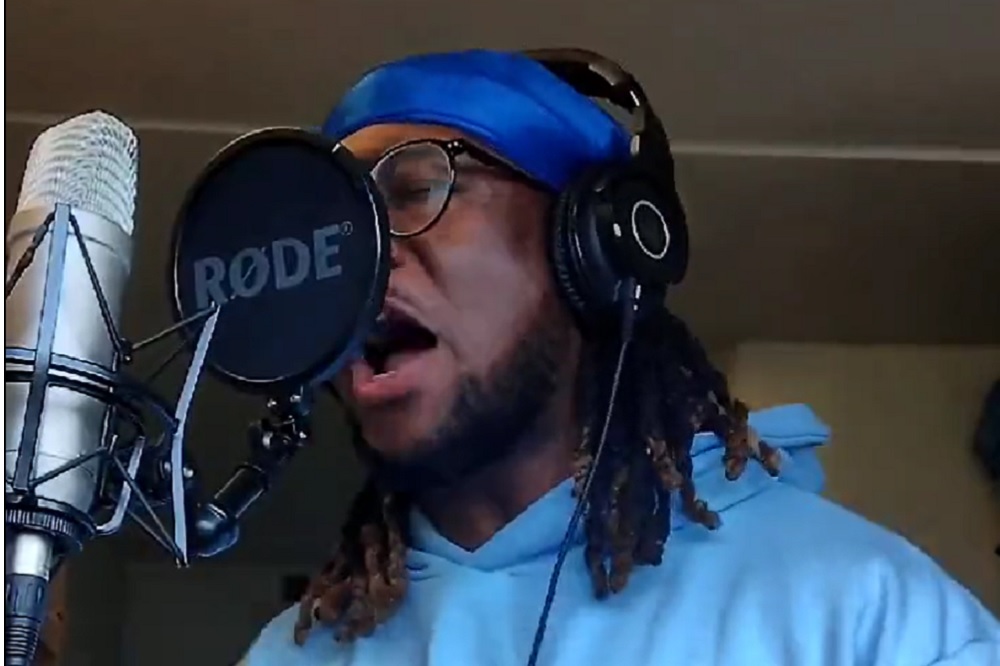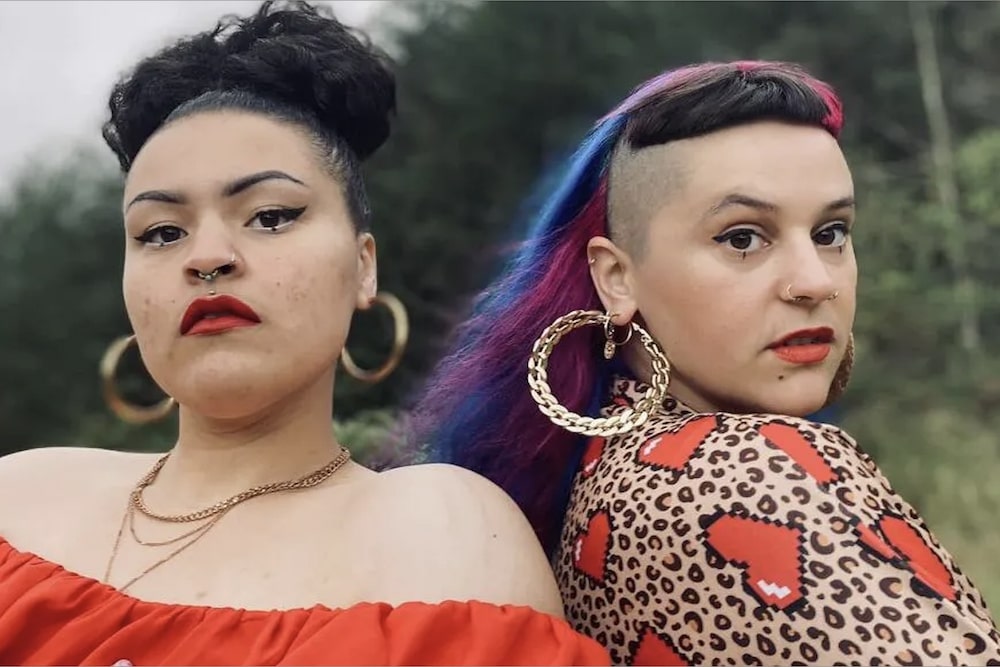‘Toxic’ abuse of artists caught up in Eisteddfod language debate condemned

Gwynedd Council’s Cabinet’s has issued a statement condemning racist comments aimed at Welsh artists caught up in the heated debate about the Welsh language rule at the National Eisteddfod.
Earlier this month rapper Sage Todz, who has been credited with spreading the use of the Welsh language and opening it up to new audiences, posted a Tweet in which he announced he would not be performing at the Eisteddfod’s music festival Maes B or the Eisteddfod itself this year due to the Welsh language policy.
The National Eisteddfod issued a response in which they said they had extensive discussions with the Sage Todz, offering him several opportunities to perform in Welsh at this year’s Eisteddfod, to be held in Boduan in August.
A spokesperson said: “Singing bilingually and in English are integral to Sage Todz’s principles, just as our language rule is integral to us as a festival and organisation. He was offered several opportunities to perform in Welsh at this year’s Eisteddfod, including taking a leading role in a major event to close the festival which was a commission to create new songs in Welsh.
“We discussed our language rule at length with Sage Todz, and we respect the fact that he is a bilingual artist, and that his decision is to adhere to his principles and continue to create bilingual and English music.”

Subsequently Eädyth and Izzy Rabey announced they do not intend to perform at the National Eisteddfod until the main language policy is changed.
In a statement they said that “bilingualism is at the core of how we express our Welsh identity and celebrate it”.
Toxic
The statement from Cyngor Gwynedd’s Cabinet said: “We are very proud to welcome the National Eisteddfod to the county and look forward to celebrating everything that makes Wales so wonderful. The Eisteddfod is a Welsh language cultural event that attracts a huge audience from Wales and beyond.
“Recently there has been a heated discussion across social media platforms following reports in the press regarding ‘the Welsh Language Rule’, an Eisteddfod governing rule that means all performances at the maes must be through the medium of Welsh.
“We are in favour of this rule as a solid foundation for what makes the Eisteddfod unique as the only monolingual Welsh language festival we have here in Wales.
“Despite this, we are disappointed and saddened to see the tone of recent discussions, which have become increasingly toxic following comments on the subject by a number of musicians.
“Artists such as Sage Todz, Eädyth, Izzy Rabey and Dionne Bennett are highly respected and have a large following among many young people in Wales. They take the Welsh language and Welshness to new audiences and are fantastic ambassadors.
“It is our understanding that some of these artists have received racist messages and comments following the media reports and we strongly condemn such attitudes. There is no place for racism in our society and we firmly reject any prejudice or hatred expressed towards minority or protected groups.
“Whilst we do not wish to see the Welsh Rule compromised, we support respectful discussions and new ideas from a range of different people, so that the Eisteddfod can continue to be a contemporary and welcoming festival with a wide appeal.
“Moreover, we call for respect towards new voices who are keen to contribute to conversations about the Eisteddfod and we regret that a discussion that could be fruitful has become negative and hurtful.”
The statement concludes: “We extend a welcome to the people of Wales and beyond from all areas and backgrounds to Gwynedd and to Eisteddfod Genedlaethol Llŷn & Eifionydd and we look forward to a fantastic week of celebrating everything that makes our culture and language so special.”
Support our Nation today
For the price of a cup of coffee a month you can help us create an independent, not-for-profit, national news service for the people of Wales, by the people of Wales.





It is good that Cyngor Gwynedd should choose to seek to pacify the negativity and call for a unified solution to this matter. My own thoughts are that a third incarnation of the ideal of the spirit of the Eisteddfod could be born out of this debate. One that seeks to bring together the congregation of modern Cymru, an increasingly diverse and colourful young population with many genres of music to draw from. Cyngor Gwynedd’s appeal to all interested parties to shape a festival of all the talents with the one aim of creating a melting pot of modern music… Read more »
Outrageous! The archdruid MUST resign!!!
(Snigger)
Despite the ill-informed positions taken by these artists and many of their fans, anybody who has levelled racist slurs at these people should be utterly ashamed of themselves. Their race has nothing to do with their opinions nor should it have any baring on the opposing view. Mochyndra llwyr. Welshness is a national and cultural identity that transcends the melanin levels you have in your dermal layers (used the doctor-y terms to show how utterly fatuous I find racism and identitarian positions that focus on immutable characteristics). The artists in question ARE as Welsh as any of us. No more… Read more »
There is a clear case for a Celtic Eisteddfod which celebrates all the Celtic languages and arts under one umbrella. Glasgow has had great success with its Celtic Connections festival which brightens up the urban winter, its 30th iteration this coming January. As an international lingua franca, why exclude English from such a gathering if it enables different nations and cultures to communicate? Only when the Celtic nations form a strong political identity with a place to gather and debate will so many small nations and communities find their full voice.
There are around 550,000 fluent Welsh speakers in Cymru, 350,000 of whom are first language speakers. I have been called all the names under sun for defending the rights of these people to live their lives in Cymraeg. I won’t stop doing that as long as I live. That said the reality is that there at least 200,000 more of us who aren’t fluent, but use the language on a daily basis. It’s done through the use of words and phrases that should NOT be translated into English, or any other language for that matter. This debate barely acknowledges our… Read more »
Definitions are collapsing: minority cultures are usually the casualties of such a collapse. The great irony here is that, whilst minority (racial, ethnic, sexual etc) representation is at (thankfully) increasing levels of prominence, our own minority status is morphed into… what exactly? Dominant? It smells awfully similar to other groups in history that, whilst having been marginalised, are considered somehow to be dominant, controlling etc. Our sole national linguistic event, which according to you, should dispense with being that which makes it distinct, has only acted honourably in this regard. The compulsion is only coming from one side here –… Read more »
Did you even read the article? The article clearly states the sensitivity of the Eisteddfod authorities in dealing with this issue, showing respect to the artist whilst at the same time establishing that their Welsh only rule must be respected. The artist in question, for whom performing bilingually is the core of what they do felt they couldn’t compromise, a completely respectable and acceptable position, just meaning that they would not be performing at the Eisteddfod. I don’t think anyone expects ‘formal’ Welsh, and your example phrases are in fact nonsense! “Dwi’n Cymru” would be acceptable, apart from the fact… Read more »
Note to Mr Mansfield it is doing it again !
Your system is aiding and abetting outside influences !